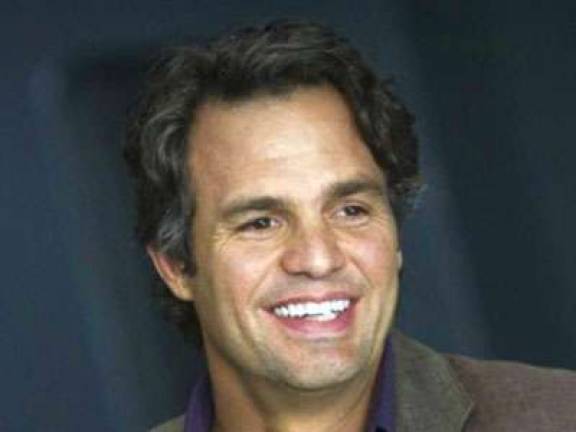Back & Forth with Mark Ruffalo: Hulk smashes hydrofracking!

In The Avengers movie that opened this past weekend, Mark Ruffalo plays the Incredible Hulk, a creature born from a scientific experiment gone awry who joins a team of superheroes seeking to save the world. The risks of scientific progress and efforts to save the planet are also at play in his real-world battle against hydraulic fracturing, Ruffalo tells City & State. What follows is an edited transcript. City & State: How did you become involved in fracking activism? Mark Ruffalo: I heard about hydrofracking before I moved my family to New York, and I thought it was going to be the greatest thing since sliced bread. It was going to bring this vibrant new economy to upstate New York. But I also started to hear some questionable things about it. So I went to the old Internet and started doing some research. At this time, there was very little to learn. The gas industry is very rosy and extremely positive. There were inklings from EPA whistleblowers and people in Wyoming whose homes were filling with gas and were coming up with these neurological disorders from the drinking water. So I decided, "I have to go look at this for myself." CS: Where did you go? MR: I went to Dimock, Pa. It wasn't really to find anything wrong. It was just to see what was going on. But in a room of 40 people, it became clear to me that these people were under siege in their life, and the American dream was betrayed. What about the EPA? The EPA wouldn't allow something like this to happen. Well, this isn't regulated by the EPA, really. Well, what about the DEP? Well, they've pretty much turned their back on us. What about your attorney general? They're not interested. There were victims there, and basically they were being told they were lying. You had these Americans who obviously had a problem, and everybody turned their backs on them. I didn't want to get involved, honestly. But if I am who I say-I care about people and I care about injustice-then I realized this is coming to my community, where there are people that I love and I care for, and it can't happen like this. CS: But fracking could create jobs in New York's poorer regions. MR: There's only a fraction of the jobs the industry says they'll create. They tend to be incredibly transient. Cornell did a study last year on what the effects would be, especially in small communities that rely on pristine water and pristine air. A lot of these communities have only agriculture and tourism to support them. What happens is the community is left worse off after the bust. A few people end up making a lot of money. It doesn't make its way out to the rest of the community. The workers leave. The area is left with less economic diversity. It kills off other industries. I understand that we're in bad times. The other thing that's interesting to point out is the fastest growing job sector right now in the United States, at 10?18 percent a year, is the green sector, or the renewable-energy sector. CS: In your experience, are people aware of the hydrofracking issue? MR: When I started three years ago, I just thought, There's no way. We're done for. We have the biggest industries in the world; we have Exxon Mobil and Chesapeake just dumping so much money. It was a done deal. Thousands of families have reported contamination now. These people are poor, they're desperate. When their wells become contaminated, their properties become worthless. They turn to the gas industry, and the gas industry says, "We didn't contaminate your well, but we will buy you out and give you water if you sign a nondisclosure agreement." We will never know these people's stories. You have people in Dimock, and some people in Wyoming now, these mothers whose children have come down with asthma and weird autoimmune-deficiency diseases, whose school is right next to compressor stations, and they're getting together and they're starting to get their stories out. They're not taking the short money, which is what we're seeing in Dimock. They're saying, "No, we're going to live through this, we've been wronged, and we're going to get our stories out." It's very different now than it was even a year ago. Fracking is a national issue. There's a lot of new information coming out, and the longer this goes on, the more we're going to find out how damning it is. To read the full interview at City & State [click here](http://www.cityandstateny.com/hulk-smash-hydrofracking/).